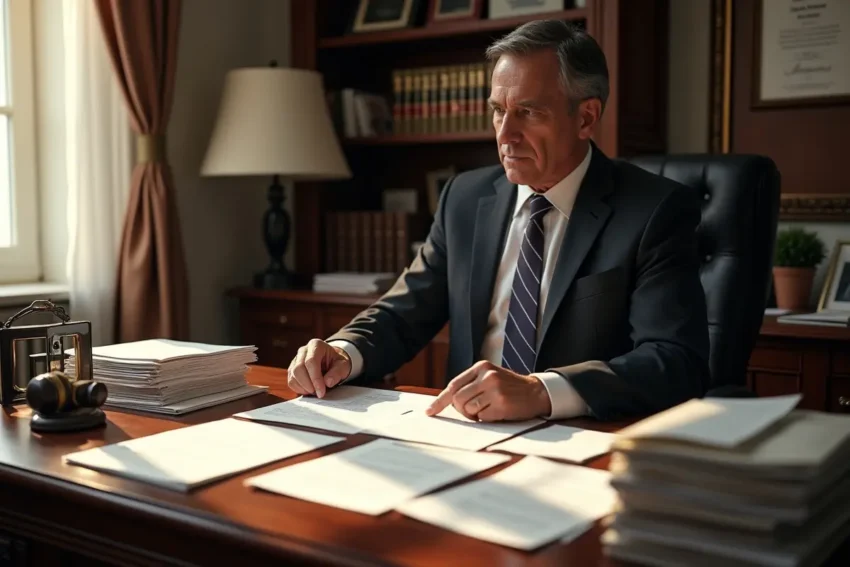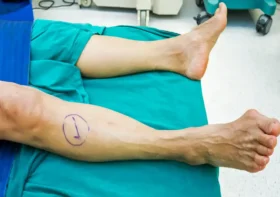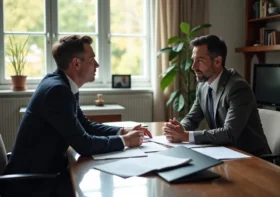The Role of Evidence in Personal Injury Litigation

If there’s one superpower that personal injury lawyers possess, it’s the power of evidence.
Evidence is what it all comes down to when you’re making a claim after being injured. No evidence? Insurance companies can write you off without batting an eye.
The problem is, many people only fully understand the importance of evidence after they fail to collect it properly. By then, it’s too late. The video footage is gone, and the witnesses have moved on.
On this page, we’ll cover:
- Why evidence is important in a personal injury claim
- What types of evidence to collect for your personal injury case
- How strong evidence can impact your settlement
- Common evidence mistakes to avoid when building a case
Read our other personal injury articles: Personal Injury FAQs, Claim Process in Illinois, Steps after an Injury, Car Accident Checklist, Timeline for Filing, Lawsuit Process and How to Know if you Need a Lawyer.
Contents
Why Evidence is Important in a Personal Injury Claim
Evidence is at the heart of every personal injury case.
You’re trying to persuade someone that you’ve been injured and deserve money for your pain and suffering. How do you do that? You present evidence. Pictures, medical bills, witness statements and more.
If you hire an Illinois law firm to handle your personal injury case, they understand the value of good evidence.
Insurance companies are trying to fight every personal injury case that crosses their desks. They’ll always try to limit your payout or pay you nothing at all.
One way they do this is by challenging your evidence.
“How bad is your injury really?” “Did the accident even cause your injuries?” “Are you trying to make this injury out to be worse than it is?”
Evidence answers all of those questions before the insurance companies even have a chance to raise them. Strong evidence is a claimant’s best defense against insurance company games.
Types of Evidence to Collect for Your Personal Injury Case
Evidence comes in many forms. But some are more valuable in a personal injury case than others.
Medical Records & Documentation
Medical records are the bread and butter of a personal injury claim.
They provide proof of your injuries, treatments, care costs, and healing time.
The problem is, most people don’t understand this until it’s too late. If you wait to document your medical treatment, there will be gaps in your medical records. This is the gift that keeps on giving for insurance companies. It allows them to create doubt around the seriousness of your injuries.
Don’t wait to collect this evidence. Document every treatment, doctor’s appointment, prescription, and therapy session.
Keep careful records from day one. Missing pieces will only hurt your case.
Photographic & Video Evidence
Photographs and video have revolutionized how personal injury cases are built.
You can catch accident scenes with security cameras and take to the skies with drones. Your own smartphone is a powerful tool, too.
Photographs are worth a thousand words. In personal injury cases? They could be worth thousands of dollars.
Photos and videos can show the conditions at an accident scene, car damage, visible injuries, slippery floor conditions, poor lighting, etc.
Get photos and video evidence from the accident scene, your injuries, and the damage to vehicles as soon as possible after an accident.
Don’t wait until later to take pictures. The more visual evidence you can capture, the stronger your case will be.
Witness Statements
Witnesses can make or break your case.
The thing is, witnesses have no stake in your outcome. They have no reason to win or lose money, so they tell the truth. This makes their statements very powerful in building your case.
Ask for names and contact information for any witnesses that you identify after your accident. Your law firm will collect witness statements before memories fade.
Expert Testimony
Witnesses aren’t always enough to explain the facts of a case.
In some instances, you need experts to provide testimony. These witnesses are professionals in their fields. Medical doctors, accident reconstruction experts, and economic experts are common.
Experts can provide an educated opinion to help explain your injuries and future needs or how an accident happened.
Expert witnesses can provide testimony that can help to clarify some of the more complex aspects of your case.
How Strong Evidence Impacts Your Settlement
Something most people don’t realize…
About 95% of personal injury cases settle before ever making it to trial. Most claims never even see a courtroom.
Wait. What?
If nearly every case settles, why should I care about evidence?
The reason is, good evidence forces insurance companies to make fair settlement offers.
Insurance companies don’t like going to trial. When they see you have the evidence to support your injury and damages, they know a judge or jury could rule against them.
Insurance adjusters don’t have to take weak evidence and meager documentation lying down.
Insurance companies LOVE to lowball injury victims. They offer fractions of what they deserve. But when an insurance company is faced with rock-solid evidence? Their bottom line numbers change.
Insurance adjusters can’t dismiss years of medical records, an accident report with video evidence, and multiple witness statements. Instead, they’re forced to make a fair offer based on the damages you’ve documented.
The year ending March 31, 2024 saw a 78% surge in personal injury and product liability filings, which numbered 129,221, per Clio’s 2024 Pipeline Report. With so many cases being filed, having good evidence separates the successful claims from the unsuccessful ones.
Common Evidence Mistakes to Avoid
Even people that are as careful as possible make these evidence mistakes:
Waiting Too Long to Collect Evidence
Evidence is a race against time.
Security cameras delete video after 30-90 days. Witnesses move on with their lives. Physical evidence vanishes. The sooner you collect evidence, the stronger your case will be.
Don’t wait to contact an Illinois law firm to help preserve the evidence for your case.
Posting on Social Media
Social media is an evidence trap.
You post a selfie at a family barbecue smiling from ear to ear. The insurance company has proof you’re not really in pain from your injury.
Don’t post anything about your accident or injuries on social media. This includes videos, photos, and seemingly innocent posts.
You might be surprised how easy it is to have social media posts used against you in your case.
Failing to Follow Medical Advice
Attending your medical appointments and following all your doctor’s advice is critical.
If a doctor tells you to attend physical therapy and you skip those appointments, you’re making your case weaker.
Insurance companies love to point out: “If you were really injured, you would have been to all your treatments”. Missing medical care implies that your injuries can’t be that bad.
Take all of your doctor’s recommendations seriously and attend all of your medical care.
Giving Recorded Statements Without a Lawyer
Insurance companies will contact you shortly after an accident.
They’ll call, seem friendly and ask for a recorded statement. Never give a recorded statement without talking to an attorney.
Insurance adjusters are trained to get you to say things that will reduce your injury claim. It only takes one little misstep to cost you thousands of dollars in potential compensation.
Bringing it All Together
Evidence is important in a personal injury case. It’s not just important, it’s everything.
Evidence is the difference between a settlement that fully covers your damages and one that leaves you strapped for cash. Evidence is what tells insurance companies they need to take your case seriously.
But it’s important to act quickly. Collect evidence as soon as you can. Document everything. Hire a qualified personal injury law firm that understands the value of good evidence.
Remember:
- Gather all evidence as soon as possible
- Document all medical treatments, from day one
- Do not post on social media about your claim
- Never give a recorded statement without an attorney present
Evidence will tell your story when your words fail to do so. Make sure your evidence is speaking volumes.



